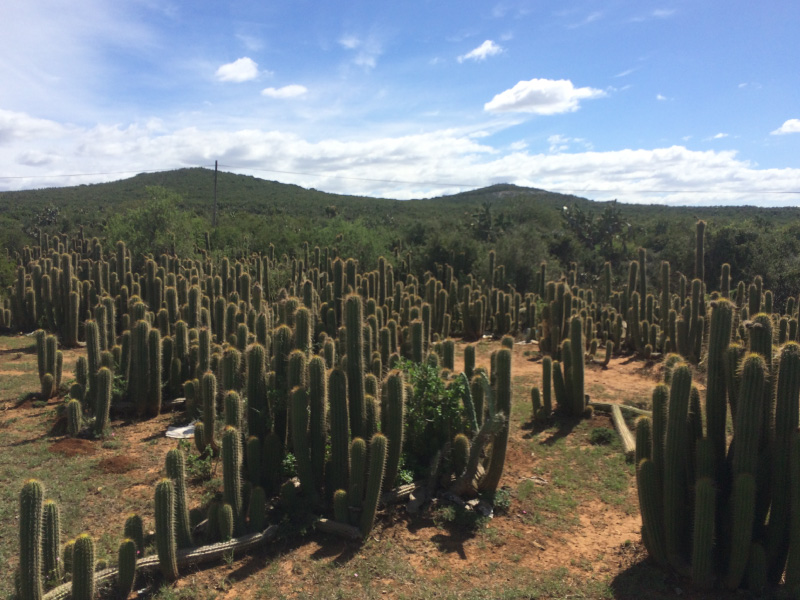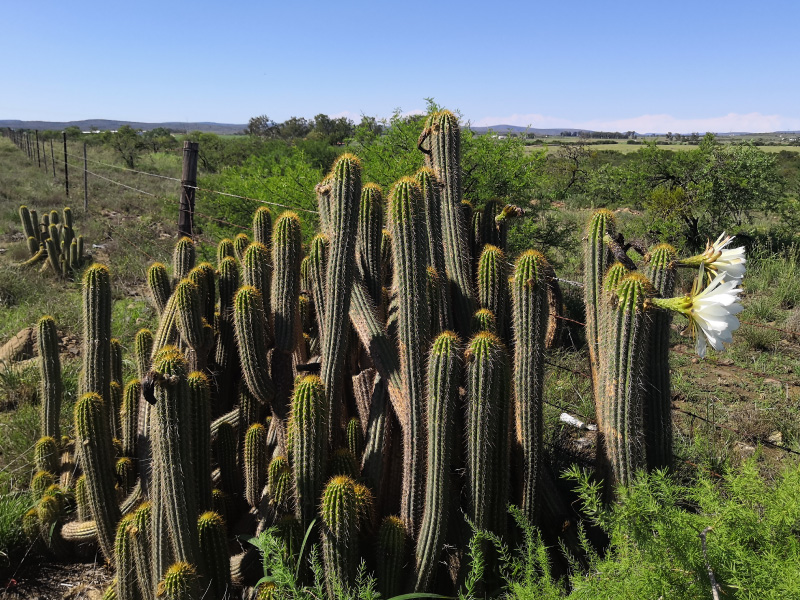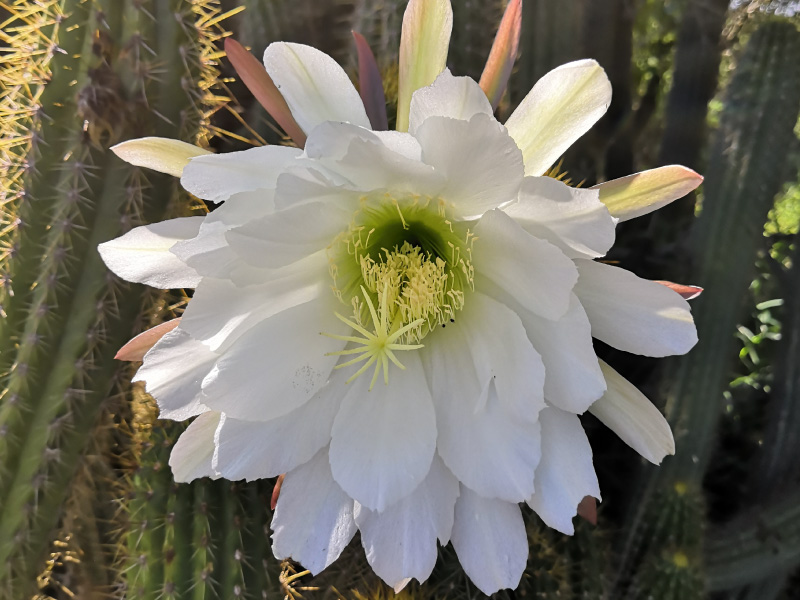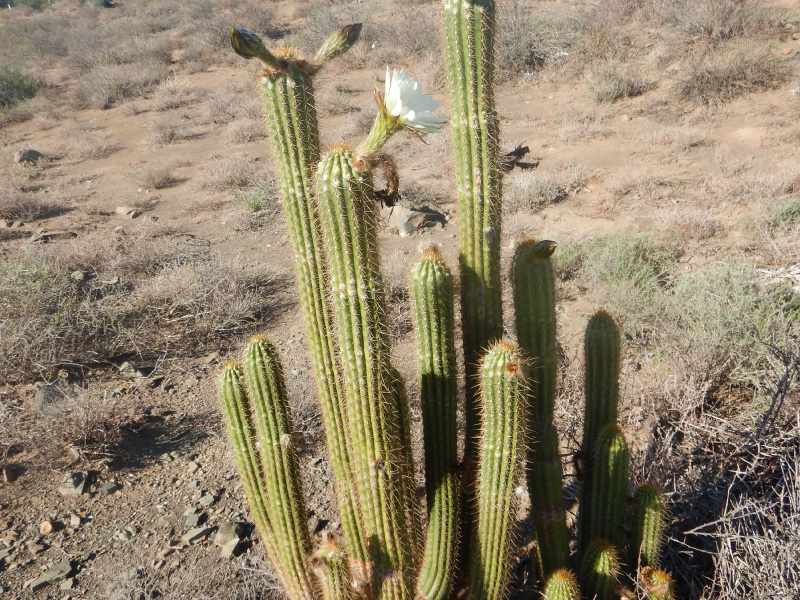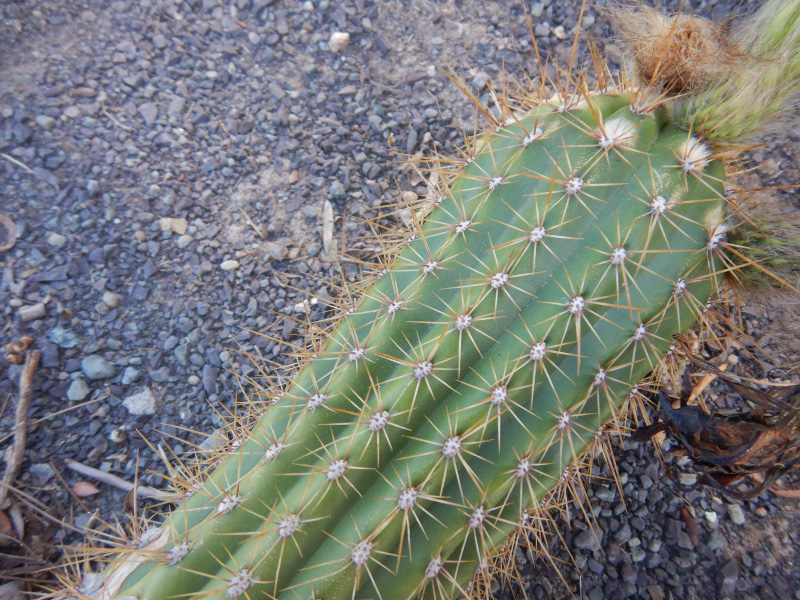21 May Trichocereus sp. (Torch cactus)
Trichocereus sp. (Torch cactus)
The torch cactus, Trichocereus sp., native to Argentina, has recently become a problem in South Africa taking up large areas of land leaving them unsuitable for grazing. In order to control this weed, a biological control program was initiated.
Cacti are among the most widespread invasive plants in South Africa. As happens with many weeds, many of these cacti were introduced as ornamental plants for private gardens, mainly for their exquisite flowers. The torch cactus, Trichocereus sp. (probably T. spachianus or T. schickendantzii), native to Argentina, has substantially increased its distribution in the last decade. Farmers view this cactus with concern as it is making large areas unsuitable for grazing. There is currently no certainty about the identity of the Trichocereus species that is invading South Africa; there is much confusion surrounding its taxonomy. Given that the torch cactus is native to South America, and occurs naturally in Argentina, FuEDEI and the Centre for Biological Control, Zoology & Entomology Dept., Rhodes University, Grahamstown, South African Centre for Biological Control, Zoology & Entomology Dept., Rhodes University, Grahamstown, South Africa are conducting genetic studies to identify the invasive species and its potential natural enemies in the native range that could be used as controllers in South Africa.
Staff:
Guillermo A. Logarzo, Laura Varone, María Belén Aguirre, Daniel Poveda Martínez, Mariel Guala.
Cooperators:
Iain Paterson, Senior Researcher: Department of Zoology and Entomology, Centre for Biological Control, South Africa.
Martin Hill, Director Centre for Biological Control, South Africa.
Tamzin Griffith, PhD student: Department of Zoology and Entomology, Centre for Biological Control, South Africa.
Lucía Claps, Instituto Superior de Entomología, Universidad de Tucumán, Argentina
Fabián Font, Facultad de Farmacia y Bioquímica, Universidad de Buenos Aires, Ciudad Autónoma de Buenos Aires.
Esteban Hasson, Departamento de Ecología, Genética y Evolución, Universidad de Buenos Aires (UBA), Argentina.


